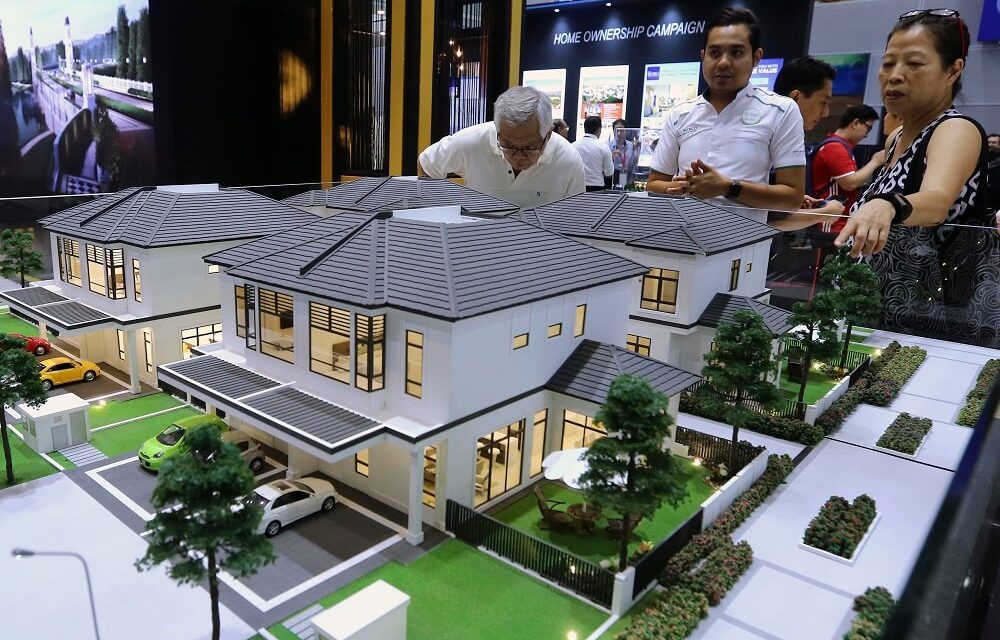‘Buyers should bargain in primary market’
The Malaysian property market will continue to be flat this year, according to CBRE | WTW managing director Foo Gee Jen. “I believe property transactions in 2020 will not be as high as 2019 as the HOC (Home Ownership Campaign) has not been extended to this year,” he said. He noted some trends that will be more apparent in the near future including the rise of millennial property buyers and the expanding senior population. On the large property overhang numbers in Malaysia, Foo said one reason for the overhang is high housing prices, especially in urban areas. “In Malaysia, it is a take it or leave it situation when it comes to new projects. It is time for the power to determine the pricing be returned to buyers. Buyers should determine the price, not the other way round,” said Foo. (The Edge)
FT Ministry creates fund to help Bumiputera pay housing deposit
The Federal Territory Ministry, through Kuala Lumpur City Hall, (DBKL) will provide a revolving fund of RM3.9 million to help Bumiputera buy affordable homes. Its Minister Khalid Abdul Samad said the move was seen as able to lighten the burden of buyers, who had been offered such accommodations, by providing down payments. The loans from the revolving fund must be paid back in 10 years without any interest being imposed. The fund was collected through fines from developers who sold Bumiputera quota units without approval other than the 5% contributions from the prices of those units which were given the green light to be sold to non-Bumiputera. He said the target of the revolving fund was the B40 group especially for the purchase of their first home. (Malay Mail)
e-Tunai allocation may be increased
The government will consider increasing the initial RM450mil allocation for 15 million people in the e-Tunai Rakyat initiative should the number of applicants increase, says Finance Minister Lim Guan Eng. Estimating the increase of applicants to be around another one million people, he said the government can still afford to foot the extra expenditure. The claims for the e-Tunai Rakyat initiative kicked off on Wednesday with Touch ‘n Go eWallet, Boost and GrabPay selected to be the service providers for the project. Lim said RM10mil expenditure was recorded on all three service providers on the first day, adding that the overwhelming response in people going cashless will provide a boost in local consumption. The government, said Lim, will embark on a road tour nationwide to promote the initiative.He called on Malaysians to register and claim the amount before March 9. (The Star Online)
PLUS likely to restructure bonds
The upcoming restructuring of Projek Lebuhraya Utara-Selatan (PLUS) Malaysia Bhd’s concession to enable a 18% toll rate cut and an extension to the toll period may be the benchmark deal for toll reduction plans involving other highways in Malaysia. RAM Rating co-head of infrastructure and utilities ratings Davinder Kaur said a sector-wide toll rate reduction will have to take into account the government’s limited fiscal space and the potential financial burden. For context, highway concession restructuring is not new in Malaysia. The largest restructuring to date was under PLUS in 2012. Previously, the restructuring of highway concession agreements by changing the toll rates and extending concession tenures had been undertaken to contain the government’s ballooning compensation payments to the highway concessionaire. (The Star Online)
Study: In 2020, domestic political instability top concern for Malaysians
Domestic political instability, which includes ethnic and religious tensions, was listed as the top security challenge for Malaysia in 2020, according to a new poll. In the “State of Southeast Asia 2020” survey by the Singapore-based ISEAS-Yusof Ishak Institute, 81% of those surveyed in Malaysia named domestic political instability as the most pronounced security challenge in 2020. The 2020 figure was up from 45.9% in the previous year’s poll. According to the survey, the second security concern for Malaysia was economic downturn, with 73% of respondents stating so. The ordering of security concerns in the 2020 findings were identical to the 2019 results — (in descending order) domestic political instability, economic downturn, climate change, increased military tensions and terrorism. (Malay Mail)





